Media | Articles
1978 AMC Concord D/L: The Hornet Goes Brougham
By 1978, AMC was on the rocks. As recently as 1974 they’d been going gangbusters, with production of 509,496 cars—an all-time high. Though the model year was extended until November of ’74 instead of the usual June (in response to the upcoming new 1975 model year emissions rules), that was still pretty impressive. Total profits were $28.6 million. Not bad for the plucky little Wisconsin-based concern.

But then things went pear-shaped. Rapidly. Not all of it was AMC’s fault, however. The 1975 recession made new car sales tank for everybody. Even well-heeled folks were thinking twice about snapping up that ’75 Cadillac Sedan de Ville sitting in the showroom at Warren Langwith Pontiac-Cadillac in downtown Davenport, Iowa.

How sharp of a curve was it? 1975 production was down to 244,941 units, according to the record keepers in Kenosha, less than half of the admittedly extended 1974 car production.

Additional competition was another factor. Starting in 1975, the new “luxury compact” Ford Granada and Mercury Monarch came on to the scene. And these new cars, with their baby Lincoln looks and interior (especially on the flossy Ghia models) went like dollar beer at a baseball game—over 300,000 were sold in ’75 alone, and that was just the Granada.

GM too had completely restyled its X-body compacts, from the Chevrolet Nova to the Buick Skylark. And there was a new luxury Nova to compete with the new Granadas too, the LN—later renamed the Concours.
Marketplace
Buy and sell classics with confidence
Meanwhile the AMC Hornet, which debuted for the 1970 model year, looked virtually the same in 1975 except for the bigger 5 mph bumpers.

Not that it was a bad car, or a bad looking car for that matter. The station wagon version, dubbed Sportabout, was a handsome compact wagon, and fancy versions like the Gucci Hornet Sportabout were pretty cool in their own right.

While the new and unforgettable Pacer had first appeared in 1975, it was only a strong seller in its first two model years; after that, it was largely forgotten by the buying public, though it lasted to 1980. This was unfortunate as in 1977 AMC spent even more in tooling for a Pacer wagon variant that did not really sell well.

Meanwhile, the rest of the lineup was given mostly a trim and color sprucing up, plus special trim options and the like. In this manner the Hornet lasted through 1977, when finally AMC was able to give its compact some attention. The result was the Concord.

And in your author’s opinion, its look and luxury was far greater than the sum of its parts. As the AMC brochure explained, the 1978 Concord was “…a luxury compact with the refinement, quiet and comfort of big expensive cars, but without the big car price.

“Suddenly 4-door compact sedans take on a new form of luxury with the introduction of the Concord. With a look of distinction from front to rear, Concord provides a handsome appearance plus a high level of appointments and standard equipment. And, its smooth, quiet, big-car ride and comfort adds to its outstanding value in today’s market.”

The D/L package added the velveteen crushed fabric seating, Landau roof, color-keyed wheel covers, wide rocker trim moldings, reclining seats, fancier door panels, and woodtone trim on the dash. All in all it was a rather nice package.

A coupe, sedan, hatchback and wagon were all offered, same as the Hornet. And, truth be told, it still essentially was a Hornet, though the front clip was new, and the much shorter front overhang made the car look a bit more purposeful, with dual rectangular headlights.

The rear had a new design as well with recessed taillights instead of the wraparound rectangular units on the old Hornet, with a matching recessed “shadowbox” for the rear license plate. But despite all the revised and restyled components, the basic body was pretty much the same as the ’77 Hornet from the windshield back.

It was still a nice update, especially considering the shoestring budget AMC’s design studio had by then. And despite being based on the ’70 Hornet, it did not look out of place parked next to new Granada Ghias or Chevy Concours or Nova Customs.

Under the hood, four-cylinder, six-cylinder and V-8 models were available. Ascending the ladder, you had the 80 hp, 121 cubic-inch displacement four; a 90 hp 232 CID six, a 120 hp 258 CID six, and the 304 CID V-8 with 130 horsepower. The sixes took up the lion’s share of production, with 110,972 Concords sporting them. Some 3780 were built with the four, and 6541 with the 304 V-8.

I happened to spy this immaculate example as I was driving through downtown Bettendorf, on my way up to the South Beloit/Roscoe, Illinois, area for a Lincoln club event. But when I saw this off to the left, I was so shocked I had to immediately park and run across busy State Street to check it out. It was painted in Golden Ginger Metallic, a very sharp and appropriately ’70s color.

I was really impressed with the condition—it was like new, right down to the hood ornament and color-keyed wheel covers. I flashed back to a triple-black ’78 Concord I remembered seeing 30 years ago parked and abandoned. I rode by it on my bike multiple times. It was rough and got dustier and dustier as it sat for at least a few weeks. Being an emblem and hood ornament collector even then (Dad would take me and my brother to the junkyard once every summer, just for that purpose), I was tempted to take one of the “Concord” scripts from the sail panel, but was just a little too concerned about being seen, ha ha!

Quite likely that poor car was turned into refrigerators and toasters before the end of that year, it was either 1993 or 1994, but it lives on in my memory. Since then, I have seen maybe 10 or 12 Concords. This sedan was the first one in probably 10 years, except for an ’80 Concord wagon my dad’s friend, John Ringier, owns. I will be writing that car up too eventually!

As for AMC, Renault took a controlling interest in them in 1978. That same year the Matador, that favorite of police departments everywhere, was discontinued. The Gremlin also disappeared after ’78, though it technically became a Spirit, and lost the distinctive triangular side windows.

In just a few years Renault Alliances replaced Concords and Matador Oleg Cassini editions coming down the lines in Kenosha. Friends of my parents, Ward and Dee Dee Josephson, got one of those Alliances. Suffice it to say it was traded in after just a few years, for a new ’87 Volvo 240 DL wagon. But I digress.

As for the Concord, it lasted through 1983, though the all-wheel-drive Eagle version carried on, and was actually the last AMC car in 1988 before Chrysler took over the company, ending it all.


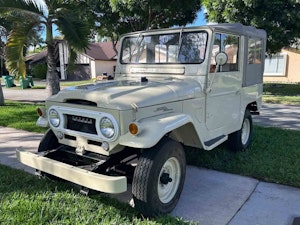

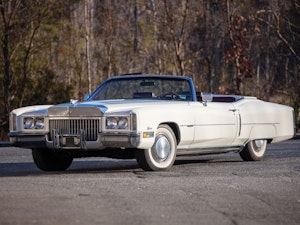
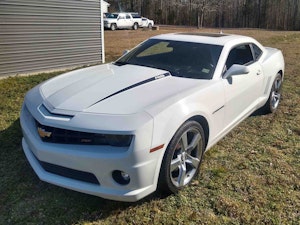
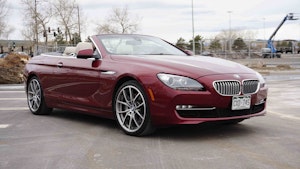
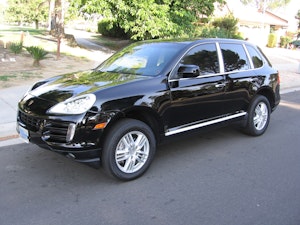
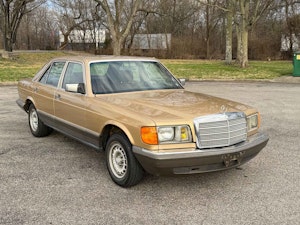
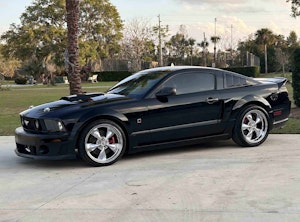
























I always thought these were an attractive car but I was not yet in the car market, much less new-car, at the time. A little later, the service station (remember those?) at which I worked had several customers with Concords. Driving them furthered my positive opinion as AMC really improved on NVH when compared to the Hornet. In my opinion they were ahead of all their competitors at the time in terms of NVH. Unfortunately, because motor oil at the time was unable to cope with the temps generated by the emission-choked engines, rocker bridges, camshafts, and bottom-end bearings became regular maintenance items on the cars. By the time I could buy one I no longer wanted one. Until now. Picture a warmed up 401 with a four speed (five if it would fit) in a DL wagon. Wouldn’t that be a fun sleeper?
Talk about AMC needing to save on retooling costs! A 1971 Sportabout and a 1988 Eagle wagon share almost identical sheetmetal – that’s 17 years of virtually the same car!
What is your point? Didn’t VW make the beetle for a whopping 65 years? I guess no one complained about the 68/82 Corvettes or 70/82 Camaro Firebirds being essentially the same
My dad traded the ’73 Pontiac Ventura for one of these in Silver/Gray, I think the AMC dealer saw him coming! LOL.
I worked summers as the cart collector at Finast Supermarket. Spelled correctly lol. The manager had a white one with a contrasting top. Brown? I thought the car was ugly at the time. Now not so much. But a neighbor had a Granada Ghia that I thought was so beautiful when they brought it home from the dealer. It was a light butter color in and out.
I worked at a Finast in Queens, NY. Worked mostly in frozen foods, but they would put me wherever they needed me if someone called out sick or messed up the schedule somewhere else in the store. Sometimes I would be the cart collector, I really enjoyed it in the nice weather – no bosses breathing down my throat, fresh air, and get to see all the different makes and models of cars in the parking lot.
These were great cars. AMC used their limited resources wisely.
I remember these all over the place in Chicagoland as a kid. They disappeared pretty quick as they rusted away.
I had a 78 2 door coupe with the 304/auto. Triple black, aluminum slots and a set of mazda buckets. Only kept it for a short time before trading for a 70 C10. Great trade, but I wouldn’t mind having the concord back either.
I saw the picture for the Hagerty article and had to read it. In the mid 70’s I took a trip to visit my parents. I rented a “compact” to save money. At the airport rental booth they gave me the keys to a “Concord” just like the one in the article. I was familiar with the Hornet, but I approached this car and though “This looks like a pimped out Hornet.” More of an “older persons” car. Surprise! It was one of the nicest rental cars I’ve ever rented. Solid, smooth, quiet, handled well, and went fine. Except for the luxo trim I really liked the car. Even more impressive it was one of the few rental cars back then I rented (I traveled for business) where all the equipment worked properly!!!! Changed my attitude toward AMC. Sadly they just couldn’t keep up with the big three styling and make enough money.
Meh – not bad-looking, but nothing special. If it was the wagon version, I would likely feel differently.
“But then things went pear-shaped.” Huh?
I miss AMC.
After owning a 1977 Nova, my dad bought a new 1980 Concord, navy blue with the 258 6. The only AMC we ever had in the family. He put around 100k on it and always said it was the quietest car he ever owned. I remember it as reliable, a decent driver, and very easy to maintain.
Thomas, that four-door wagon in the brochure looks sooo period correct for today! Even has an Audi All-Road look to it, at least in it’s proportions. Really could be a contender to counter the compact SUV market if people realized they don’t NEED a compact SUV for their purposes. Great write up!